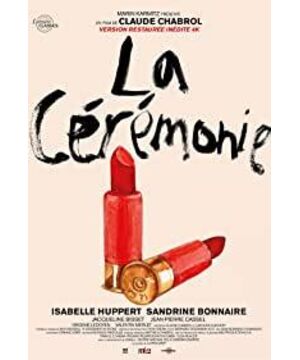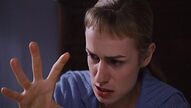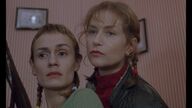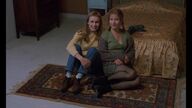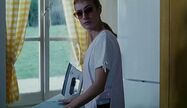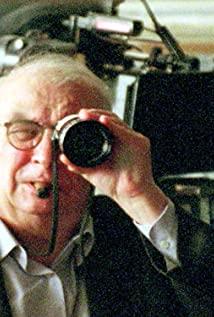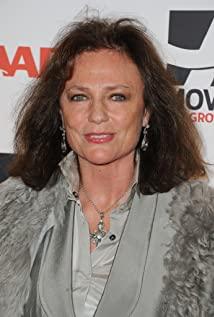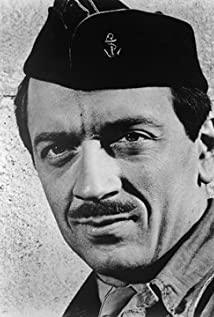The whole film is shrouded in the suspense and thriller of the soundtrack from the very beginning. I can see a class antagonism after watching it myself, and then the uncontrollable disgust for Jeanne in the post office played by Aunt Pell, and then I went to the podcast to listen to Mr. Dai Jinhua. A paragraph of appreciation, recording some key points are as follows:
Chabrol's French crime film focuses on the pursuit of the causes of crime, and the observation and description of the criminal's social psychology and personal psychological distortion and perversion.
His films reveal a clear double identity: on the one hand, narrative presentation always produces a sympathetic understanding of criminals (comprehensive sympathy), a highly individual, isolated, marginalized "post-Freudian" crime The characteristics of psychology, that is, the criminal pursues pure pleasure and satisfaction (psychopathy in the social sense); the other side is the identification of the victim, and the understanding is full of hesitation and doubt at the same time. and the rejection and contempt of moral consciousness (characterized by moral hypocrisy). In the post-industrial society, the "Jean Valjean" crime has disappeared (crime driven by hunger), and the crime that is still ubiquitous is mostly caused by psychological distortions and perversions, and the distorted mind adopts the self-realization and self-placement. extreme behavior.
With low-end women VS elite family as a class comparison, Sophie is clearly exposed and presented as a psychopath with an evil and twisted mind by a killing. Rather than showing the process of crime, it is better to use crime to show us a mental portrait that makes our teeth chill. It is not a reproducible record of criminal actions, but an ordinary modern person who exposes all the true psychic trajectories at a certain moment. The dual protagonists of the crime (the rude Jeanne at the post office and the seemingly tame Sophie), Jeanne's role has become the most important foil for Sophie. At the beginning, we will have an unreserved hatred for Jeanne without exception. Harmful weak Sophie, Jeanne seems to be an evil call to her, and she is a real psychopath, split personality, mirror on the fireplace, two split images of one character, docile The evil Sophie and the evil and cruel Sophie. Jeanne is just a "typical lower class person" with no education and no sense of morality, and Sophie understands the rules of the game in mainstream society, and is also making effective use of this. Her understanding and deep knowledge constitute the power of her crime. They have all been charged with killing their relatives. The difference is that Sophie's father's death was a crime she carefully planned, using a loophole in the law to exonerate herself. Jeanne's crime was entirely because of her rudeness and irresponsibility.
What constitutes class conflict is not only the difference in social status, but also the social difference expresses relative wealth and relative poverty. In relative poverty, the difference is an interesting conflict, which is marked by cultural upbringing and knowledge possession. The TV set of the film, the two heroines' fascination with TV sets, and their fascination with popular culture, corresponds to the master's books and operas and other noble arts, so illiteracy has become a social shame. In the film "The Reader" There are similar expressions in .
View more about La Cérémonie reviews


